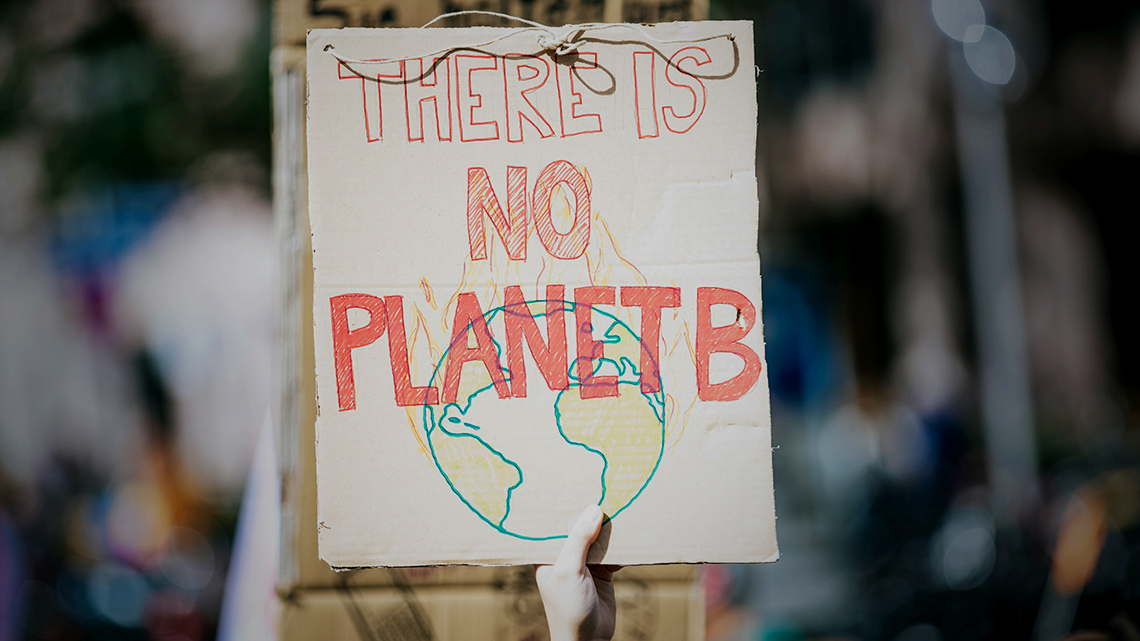
On July 9, 2025, Pope Leo XIV will celebrate the first “Mass for the Care of Creation”, with a new formulary of the Roman Missal, produced by the Dicastery for Promoting Integral Human Development and the Dicastery for Divine Worship and the Discipline of the Sacraments, and presented Thursday, July 3, during a press conference at the Vatican. The Pope will celebrate this private Mass during his holiday with the staff of the “Borgo Laudato Sì” (“Laudato Sì Village”), an educational center located in the Papal residence in Castel Gandolfo.
With this new formulary “the Church is offering liturgical, spiritual and communal support for the care we all need to exercise of nature, our common home. Such service is indeed a great act of faith, hope and charity”, Cardinal Michael Czerny, Prefect of the Dicastery for Promoting Integral Human Development said during the press conference. This Mass dedicated to taking care of creation “calls us to be faithful stewards of what God has entrusted to us – not only in daily choices and public policies, but also in our prayer, our worship, and our way of living in the world”.
In the Roman Missal there are 49 different Masses and prayers for various needs and occasions. Of these, 17 are dedicated to civil needs and this new liturgical text will now become a part of this category. An official decree by the Dicastery for Divine Worship and the Discipline of the Sacraments, approved by Pope Leo XIV and dated June 8, was also released, marking the addition of the formulary to the Roman Missal.
This liturgical text was developed in collaboration with several Vatican dicasteries and was strongly inspired by Pope Francis’ encyclical Laudato Si’, which this year celebrates the 10th anniversary of its publication. The release of the formulary also falls on the year of the 35th anniversary of St. John Paul II’s 1990 message for the World Day of Peace, titled “Peace with God the Creator, Peace with all of Creation”.
“’The Mass for the Care for Creation’ takes up some of the main positions contained in Laudato Si’ and expresses them in the form of a prayer within the theological framework that the encyclical revives”, Archbishop Vittorio Francesco Viola, secretary of the Dicastery for Divine Worship and the Discipline of the Sacraments, explained during the press conference. The texts that make up the formulary for this Mass “are a good antidote” against reading Laudato Si’ as concerned with a “false or superficial ecology”, which is “far removed from that ‘integral ecology’ amply described and promoted in the encyclical”. In fact, he described Francis’ encyclical as an “eco-social” text, rather than just “ecological”.
“Creation is not an added theme but is always already present in the Catholic liturgy”, as the Eucharist “joins heaven and earth, it embraces and penetrates all creation” and in it “we bless God for the bread and wine we receive”, Cardinal Czerny said. This Mass can now “increase our gratitude” and also “invites us to respond with care and love” to the issues of today.
Quoting Pope Leo XIV’s message for this year’s World Day of Prayer for the Care of Creation, released on July 2, the Cardinal additionally highlighted that “in a world where the most vulnerable of our brothers and sisters are the first to suffer the devastating effects of climate change, deforestation and pollution, care for creation becomes an expression of our faith and humanity”. He insisted, citing Laudato Si’, that “the cry of the earth and the cry of the poor are one and the danger of a superficial ecology” is to believe that the only “problems to be solved are ecological ones” and that this can be done “at the expense of the people”.
Archbishop Viola emphasized that the readings featured in this Mass are “very rich and offer several insights”. From the Old Testament, for example, a reading from the Book of Wisdom (13,1-9) is included, which highlights the importance of seeing God through his creation. For the Responsorial Psalm, certain verses are listed from Psalm 18, which highlights how “the heavens declare the glory of God”, and Psalm 103, which states “Bless the Lord, all his creatures”. For the New Testament, a reading from St. Paul’s letter to the Colossians (1,15-20) was selected that affirms that Christ “is the image of the invisible God, the firstborn of all creation. For in him were created all things in heaven and on earth”. Lastly, two passages from the Gospel of Matthew are suggested. In the first (6,24-34) Christ invites to “look at the birds in the sky; they do not sow or reap, yet “your heavenly Father feeds them”. The second (8,23-27) features the moment when Jesus calms a storm while on a boat with his disciples. The prayers in the Mass also reflect the importance of caring for creation, for example by stating “while we wait for new heavens and a new earth, let us learn to live in harmony with all creatures”.
Finally, responding to a question about the publication of some press articles related to Pope Francis’s 2021 Motu Proprio, Traditionis custodes, the Director of the Holy See Press Office, Matteo Bruni, noted that the published texts contribute to “a very partial and incomplete reconstruction.” In fact, a consultation is cited to which, however, “further documentation and other confidential reports — also the result of additional consultations — were subsequently added and submitted to the Dicastery for the Doctrine of the Faith.”
source: vaticannews.va